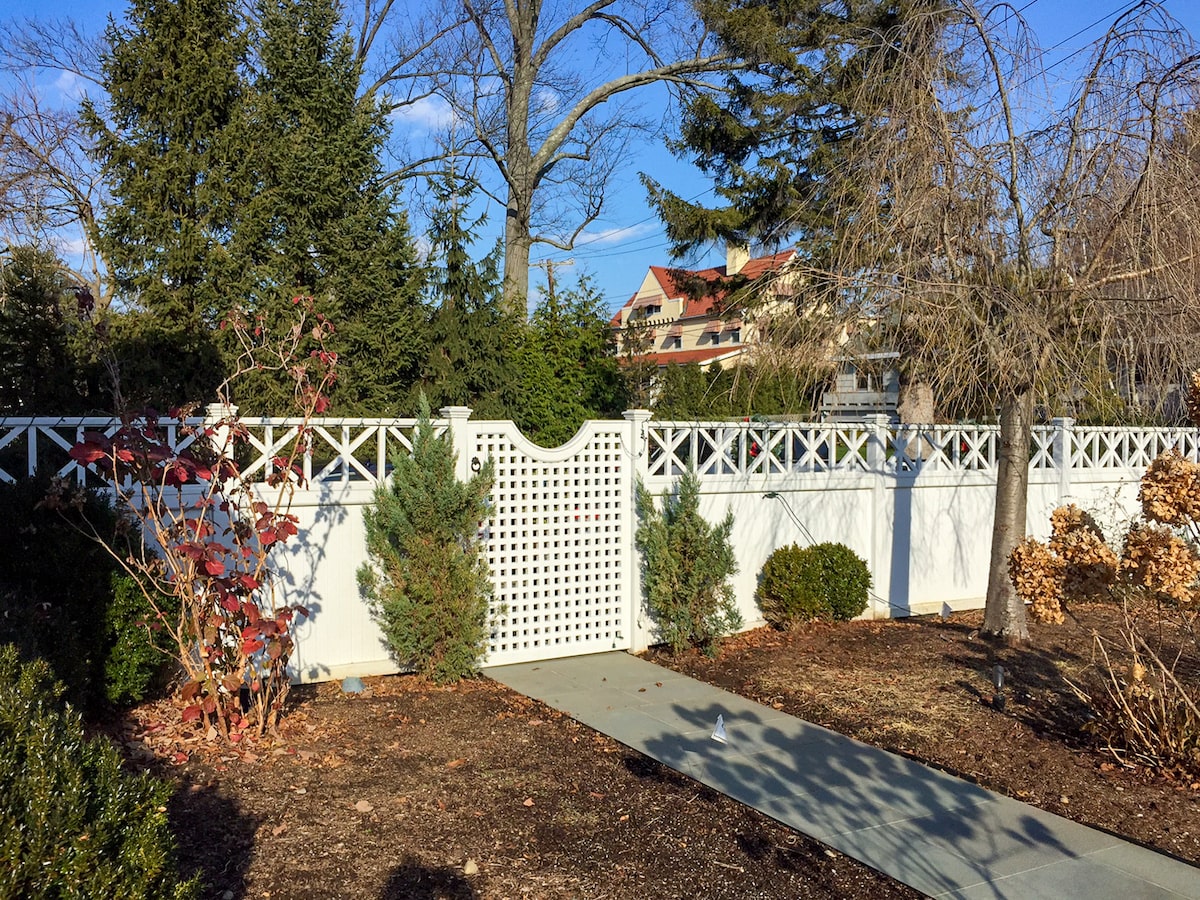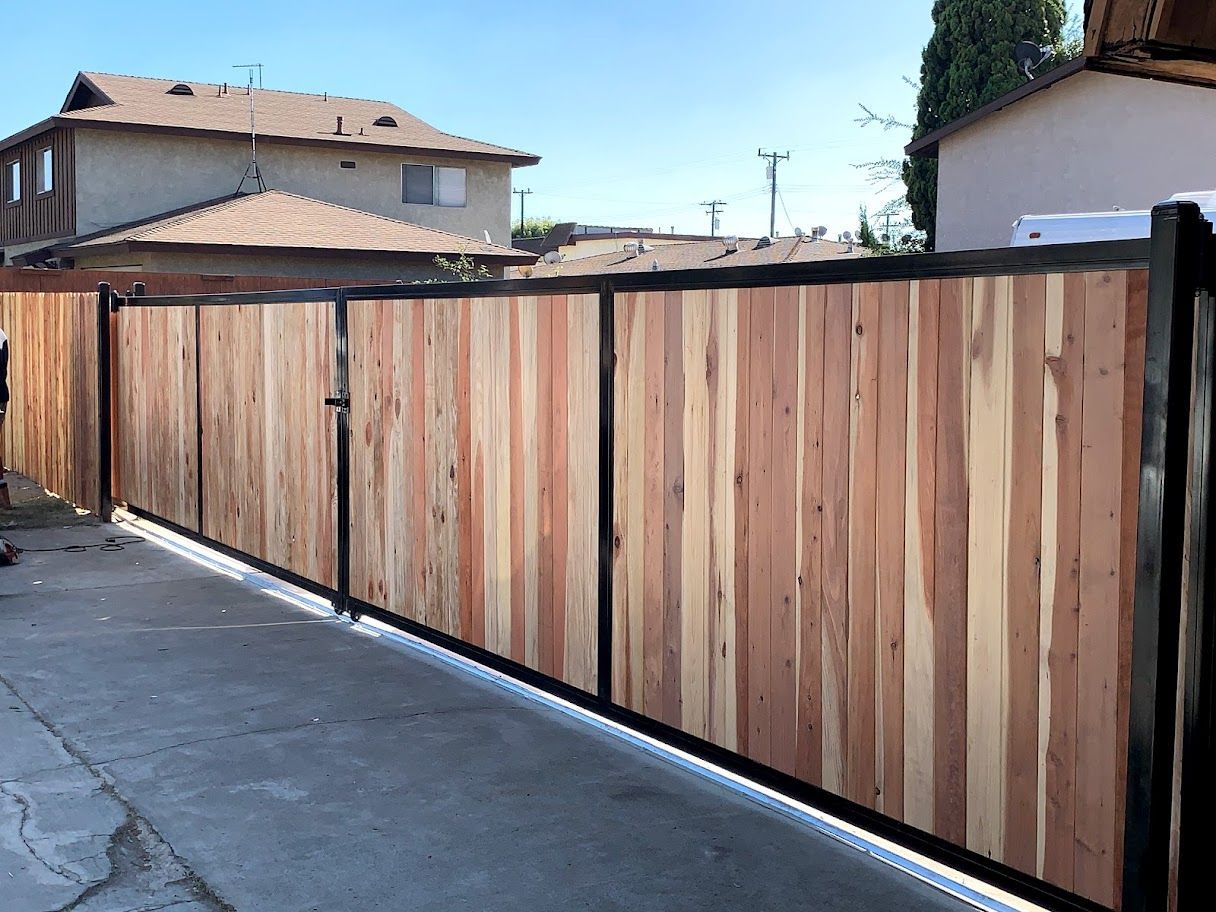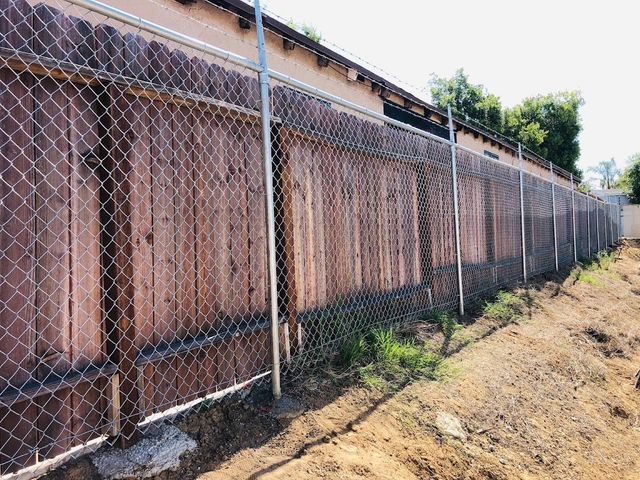All Categories
Featured
It's essential to understand the authorization needs particular to your area when you decide to mount a fencing around your domestic building. While mounting a fencing can appear like a simple home enhancement task, local regulations and guidelines have to be followed to make sure the setup is compliant and lawful. Falling short to secure the proper permits might cause fines or perhaps require you to get rid of the fencing. Here's a detailed look at the authorizations you may need for fence installation.
Why Do You Required a Permit for Fence Setup? A fence is greater than simply a barrier in between residential or commercial properties-- it can affect safety, property worth, looks, and even environmental conditions. City governments call for permits to ensure that fencings meet particular criteria and do not create problems for energies, neighbors, or the neighborhood in its entirety. Permits likewise make sure that the setup complies with zoning laws, constructing codes, and safety laws.
![]()
Types of Permits You Might Require. Building License. A building authorization is among one of the most usual authorizations needed for fencing setup. This license makes sure that the fencing fulfills local building regulations. For instance, if you're developing a fence over a specific elevation (normally over 6 feet), you'll likely require a building authorization. The local building division will typically evaluate the website and evaluation strategies to make sure the framework is secure and does not block public spaces or produce threats.
Zoning License. Zoning regulations control exactly how land is made use of in a particular location, and they consist of guidelines concerning fences. A zoning permit guarantees your fencing abides by problem, area, and height laws. Fencings might need to be established back a particular range from walkways, roads, or residential property lines to avoid blockage or disturbance with energies. In some instances, zoning laws can also define which materials are allowed.
HOA Authorization. If your property is part of a property owners association (HOA), you may need to seek approval prior to mounting a fencing. HOAs usually have guidelines that regulate the aesthetics and structure of fences to guarantee they are in harmony with the community. You may need to submit your prepare for authorization, and the HOA may restrict fence height, product, or style.
Specialty Permits. In some areas, there may be added licenses required for certain circumstances. If your fence is near a safeguarded ecological area or located in a flood zone, you might need to get specialty authorizations related to ecological effect. If the fencing is in a location with underground energies, you might require to get clearance to prevent harmful pipes or cable televisions.
![]()
Easement or Utility Firm Approval. Prior to setting up a fence, it's crucial to check whether the property consists of an easement, such as an utility easement, which could impact where you can place your fence. Easements are areas of land designated for public or private utilities, and you might require permission from the utility firm or various other authority to build within this location.
Just How to Discover What Allows You Required. To make certain that you're following all the required regulations, below's just how you can determine the details permits needed for your fence installment:
![]()
Check Out Your Regional Federal Government Office: The very first step is to get in touch with your regional building or zoning department. Several cities and regions have guidelines available online that define what sorts of permits are needed for fencing installment. Otherwise, going to the office or calling personally can help clear up the procedure. Check Your City's Internet site: Lots of towns provide details about fencing installments and the licenses required with their official web sites. Some web sites even allow you to submit applications online. Consult a Fence Installation Professional: If you're uncertain regarding regional guidelines, a professional fence professional can assist. They are acquainted with the permitting process and can assist you via the actions. The Consequences of Not Getting an Authorization. Failing to secure the required permits before installing a fencing can result in considerable repercussions. You might be fined or required to eliminate the fence entirely. In addition, if you decide to sell your home in the future, the lack of a permit can hinder possible customers, as they might see it as a sign that the home is not certified with neighborhood legislations. Making sure that you have the correct permits will certainly conserve you time, money, and frustrations over time.
Final thought. Installing a fence around your house can include both protection and visual appeal, however it's crucial to ensure you're following the legal action in the procedure. Looking into the particular license needs for your area, including building permits, zoning policies, HOA authorization, and utility approvals, will assist guarantee your fence setup goes smoothly. Putting in the time to recognize these demands now can conserve you from costly errors and potential lawful issues down the line.
Why Do You Required a Permit for Fence Setup? A fence is greater than simply a barrier in between residential or commercial properties-- it can affect safety, property worth, looks, and even environmental conditions. City governments call for permits to ensure that fencings meet particular criteria and do not create problems for energies, neighbors, or the neighborhood in its entirety. Permits likewise make sure that the setup complies with zoning laws, constructing codes, and safety laws.

Types of Permits You Might Require. Building License. A building authorization is among one of the most usual authorizations needed for fencing setup. This license makes sure that the fencing fulfills local building regulations. For instance, if you're developing a fence over a specific elevation (normally over 6 feet), you'll likely require a building authorization. The local building division will typically evaluate the website and evaluation strategies to make sure the framework is secure and does not block public spaces or produce threats.
Zoning License. Zoning regulations control exactly how land is made use of in a particular location, and they consist of guidelines concerning fences. A zoning permit guarantees your fencing abides by problem, area, and height laws. Fencings might need to be established back a particular range from walkways, roads, or residential property lines to avoid blockage or disturbance with energies. In some instances, zoning laws can also define which materials are allowed.
HOA Authorization. If your property is part of a property owners association (HOA), you may need to seek approval prior to mounting a fencing. HOAs usually have guidelines that regulate the aesthetics and structure of fences to guarantee they are in harmony with the community. You may need to submit your prepare for authorization, and the HOA may restrict fence height, product, or style.
Specialty Permits. In some areas, there may be added licenses required for certain circumstances. If your fence is near a safeguarded ecological area or located in a flood zone, you might need to get specialty authorizations related to ecological effect. If the fencing is in a location with underground energies, you might require to get clearance to prevent harmful pipes or cable televisions.

Easement or Utility Firm Approval. Prior to setting up a fence, it's crucial to check whether the property consists of an easement, such as an utility easement, which could impact where you can place your fence. Easements are areas of land designated for public or private utilities, and you might require permission from the utility firm or various other authority to build within this location.
Just How to Discover What Allows You Required. To make certain that you're following all the required regulations, below's just how you can determine the details permits needed for your fence installment:

Check Out Your Regional Federal Government Office: The very first step is to get in touch with your regional building or zoning department. Several cities and regions have guidelines available online that define what sorts of permits are needed for fencing installment. Otherwise, going to the office or calling personally can help clear up the procedure. Check Your City's Internet site: Lots of towns provide details about fencing installments and the licenses required with their official web sites. Some web sites even allow you to submit applications online. Consult a Fence Installation Professional: If you're uncertain regarding regional guidelines, a professional fence professional can assist. They are acquainted with the permitting process and can assist you via the actions. The Consequences of Not Getting an Authorization. Failing to secure the required permits before installing a fencing can result in considerable repercussions. You might be fined or required to eliminate the fence entirely. In addition, if you decide to sell your home in the future, the lack of a permit can hinder possible customers, as they might see it as a sign that the home is not certified with neighborhood legislations. Making sure that you have the correct permits will certainly conserve you time, money, and frustrations over time.
Final thought. Installing a fence around your house can include both protection and visual appeal, however it's crucial to ensure you're following the legal action in the procedure. Looking into the particular license needs for your area, including building permits, zoning policies, HOA authorization, and utility approvals, will assist guarantee your fence setup goes smoothly. Putting in the time to recognize these demands now can conserve you from costly errors and potential lawful issues down the line.
Latest Posts
Practical Carpeting Take Care Of Lasting Beauty
Published Apr 20, 25
1 min read
Trusted Mechanic Services at Montclare Auto Repair - Don’t Wait, Act Now!
Published Apr 20, 25
2 min read
Unlock Exclusive Discounts with WyHy's Love My Cooperative credit union Rewards
Published Apr 20, 25
1 min read
More
Latest Posts
Practical Carpeting Take Care Of Lasting Beauty
Published Apr 20, 25
1 min read
Trusted Mechanic Services at Montclare Auto Repair - Don’t Wait, Act Now!
Published Apr 20, 25
2 min read
Unlock Exclusive Discounts with WyHy's Love My Cooperative credit union Rewards
Published Apr 20, 25
1 min read